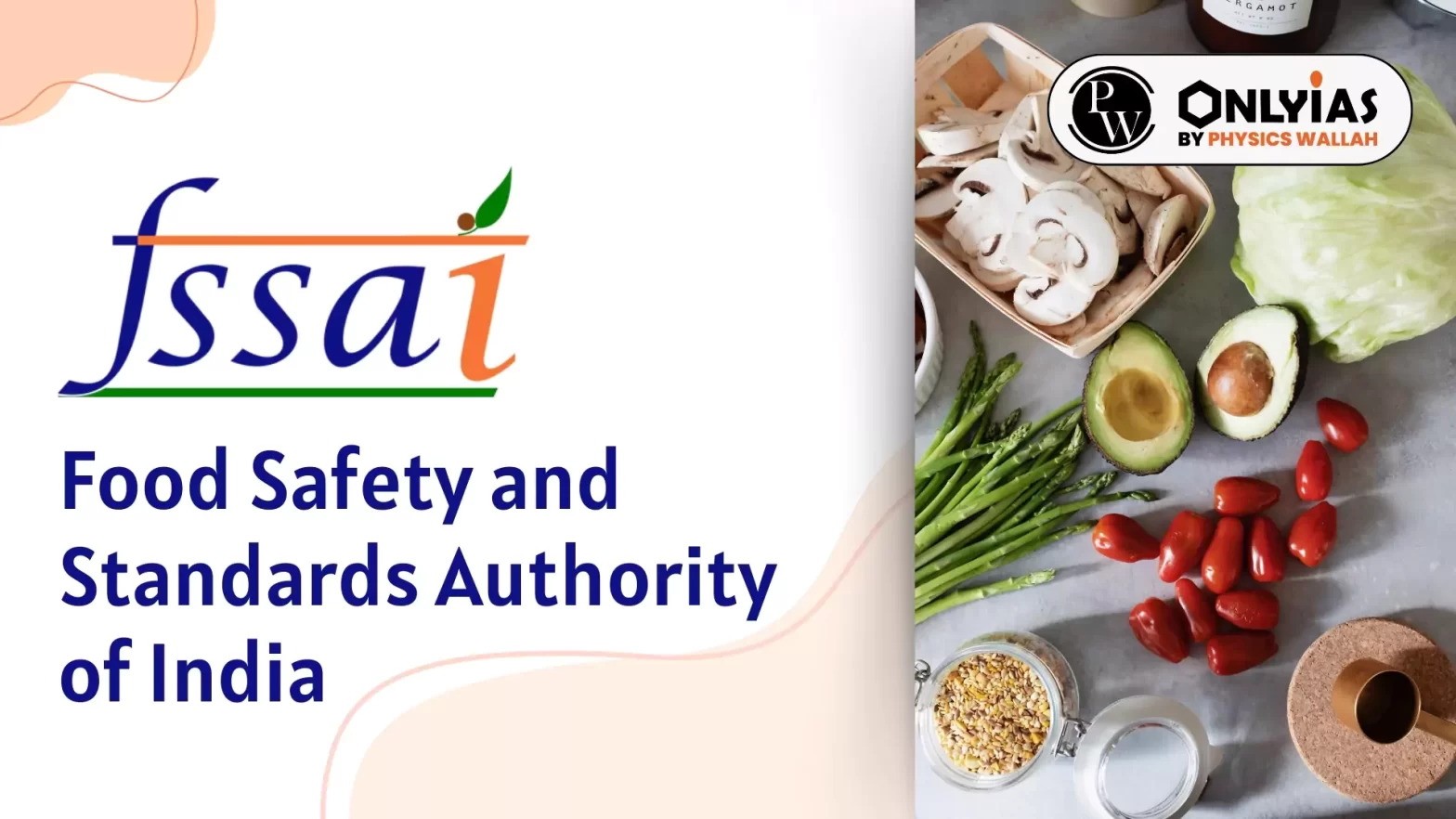The Food Safety and Standards Authority of India (FSSAI) is a statutory body formed under the Food Safety and Standards Act, 2006, and operates under the Union Ministry of Health and Family Welfare.

Provision: The Food Safety and Standards Authority of India (FSSAI) is a statutory body formed under the Food Safety and Standards Act, 2006, and operates under the Union Ministry of Health and Family Welfare.
| Must Read | |
| NCERT Notes For UPSC | UPSC Daily Current Affairs |
| UPSC Blogs | UPSC Daily Editorials |
| Daily Current Affairs Quiz | Daily Main Answer Writing |
| UPSC Mains Previous Year Papers | UPSC Test Series 2024 |
The Food Safety and Standards Authority of India (FSSAI) is a statutory body formed under the Food Safety and Standards Act, 2006.
FSSAI operates under the Union Ministry of Health and Family Welfare.
The FSSAI is made up of 22 members and a chairperson. One-third of the members must be women. The chairperson is appointed by the central government, and he must have held the position of not below the rank of Secretary to the Government of India.
The FSSAI has the mandate of regulating the manufacture, storage, distribution, sale, and import of food articles, and also establishing standards to ensure food safety.
Prevention of Food Adulteration Act, 1954 Fruit Products Order, 1955 Meat Food Products Order, 1973. Vegetable Oil Products (Control) Order, 1947 Edible Oils Packaging (Regulation) Order 1988 Solvent Extracted Oil, Milk, and Milk Products Order, 1992 De- Oiled Meal and Edible Flour (Control) Order, 1967
State Food Safety Index (SFSI), Eat Right India, Save Food, Share Food, Share Joy, Heart Attack Rewind, Clean Street Food, etc are some of the famous initiatives of FSSAI.
<div class="new-fform">
</div>